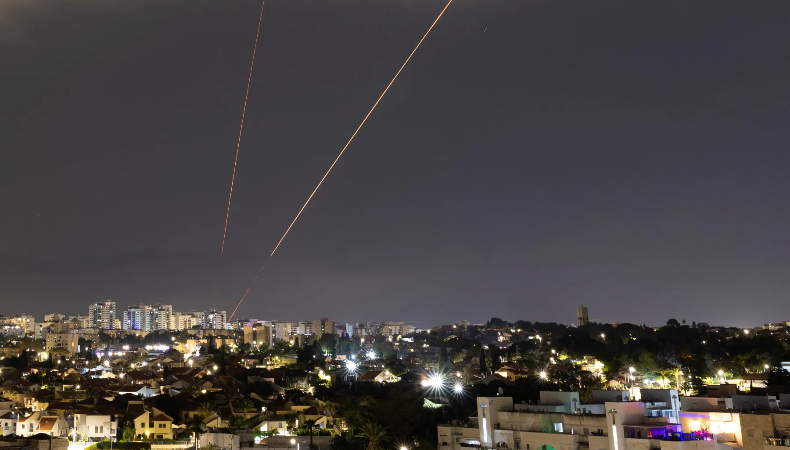Iran’s Open Attacks Against Israel: What we know so far

Iran has started a major missile attack on Israel, launching about 180 missiles; reports state some of them have landed on Israeli soil. Following a similar attack in April with about 110 ballistic missiles and 30 cruise missiles, this represents Iran’s second significant attack of this year.
Although the immediate threat from Iran was passed, Israeli military sources said, the degree of the damage resulting from this most recent attack is yet unknown. Reacting to the aggressiveness, Israeli Prime Minister Benjamin Netanyahu has issued warnings of possible repercussions.
Specifics of the Attack
The Israeli army verified the extent of Iran’s attack, pointing out it was rather more than the April onslaught. Shortly before 19:45 local time (16:45 GMT), Israeli television footage caught some missiles over the Tel Aviv region. Although Israeli aerial defense systems stopped most missiles, reports revealed that several military bases, restaurants, and schools might have suffered damage.
Claiming to be using hypersonic missiles for the first time, the Iranian Islamic Revolutionary Guard Corps (IRGC) said that 90% of their missiles effectively struck approved targets. They aimed especially at three Israeli military locations. According to the Palestinian civil defense agency, a man apparently perished in Jericho from falling rocket debris during the missile strike.
Though two people were treated for minor shrapnel wounds, Israeli police have not recorded any major injuries resulting from the strike.
Causes of Iran’s Aggression
According to the IRGC, the missile strikes were reprisals for the Israeli murders of well-known personalities connected to groups supported by Iran in the area. They mentioned the execution of Hamas political leader Ismail Haniyeh in Tehran earlier in July as well as the recent assassinations of Hezbollah chief Hassan Nasrallah and IRGC commander Abbas Nilforoshan in Beirut on September 27. Israel is generally thought to be guilty even though it has not formally admitted its role in the murder of Haniyeh.
According to a top Iranian official, Ayatollah Ali Khamenei, the Supreme Leader, personally directed the missile attack. Iran has constantly desired Israel’s eradication and supports several paramilitary groups battling Israel since it does not accept its legitimacy. Israel has years of clandestine operations against Tehran since it sees Iran as an existential danger.
Defense System Effectiveness for Israel
Israel uses sophisticated air defense systems, most famously the Iron Dome, meant to intercept short-range missiles fired by groups like Hamas and Hezbollah. Although the Iron Dome was operating during earlier Iranian strikes, other elements of Israel’s layered defensive system most certainly helped to control the current bombardment.
While Arrow 2 and Arrow 3 interceptors are used against long-range ballistic missiles, David’s Sling, a joint US-Israeli project, targets medium-to-long range rockets and missiles.
Global Reactions
Reiterating his government’s support of Israel in reaction to the missile attack, US President Joe Biden called Iran’s actions “defeated and ineffective.” US Navy destroyers intercepting Iranian missiles resulted from his directive of US forces in the area helping Israel in its defense.
Lloyd Austin, US Defense Secretary, denounced the aggression and confirmed several accurate interceptions. Reports show that British fighter planes supported Israel during the attack, and UK Prime Minister Sir Keir Starmer showed sympathy with Israel, therefore acknowledging its right to self-defense. Joining the chorus of criticism against Iran, France and Japan exhorted all sides to stop more escalation.
Saying that Israel had plans in place to react at a time and place of its choice, Netanyahu defined Iran’s conduct as a major mistake that would not go unpunished. Any reprisal from Israel would be greeted with even more catastrophic reaction, the IRGC cautioned.
Targeting Hezbollah sites in Beirut, the Israeli army started airstrikes following the missile barrage, advising Beirut’s people to flee southern areas where Hezbollah operates. The situation is still delicate and there is a chance of regional escalation.




